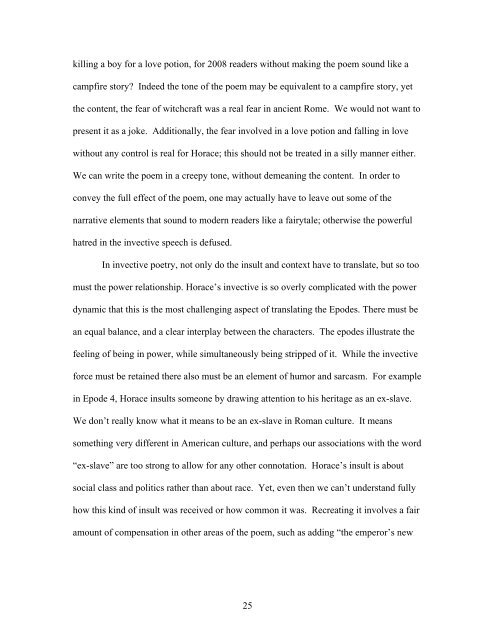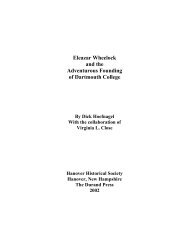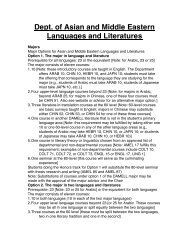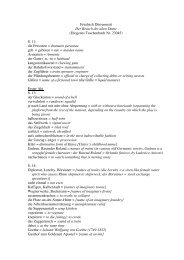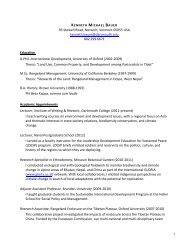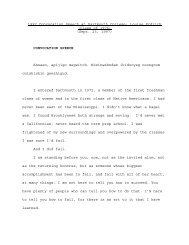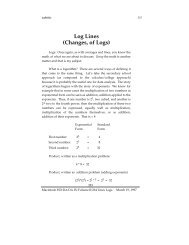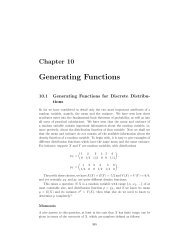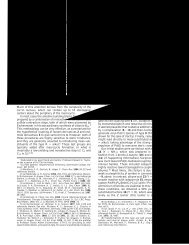A Log Cabin Out of Stone: - Dartmouth College
A Log Cabin Out of Stone: - Dartmouth College
A Log Cabin Out of Stone: - Dartmouth College
You also want an ePaper? Increase the reach of your titles
YUMPU automatically turns print PDFs into web optimized ePapers that Google loves.
killing a boy for a love potion, for 2008 readers without making the poem sound like a<br />
campfire story? Indeed the tone <strong>of</strong> the poem may be equivalent to a campfire story, yet<br />
the content, the fear <strong>of</strong> witchcraft was a real fear in ancient Rome. We would not want to<br />
present it as a joke. Additionally, the fear involved in a love potion and falling in love<br />
without any control is real for Horace; this should not be treated in a silly manner either.<br />
We can write the poem in a creepy tone, without demeaning the content. In order to<br />
convey the full effect <strong>of</strong> the poem, one may actually have to leave out some <strong>of</strong> the<br />
narrative elements that sound to modern readers like a fairytale; otherwise the powerful<br />
hatred in the invective speech is defused.<br />
In invective poetry, not only do the insult and context have to translate, but so too<br />
must the power relationship. Horace’s invective is so overly complicated with the power<br />
dynamic that this is the most challenging aspect <strong>of</strong> translating the Epodes. There must be<br />
an equal balance, and a clear interplay between the characters. The epodes illustrate the<br />
feeling <strong>of</strong> being in power, while simultaneously being stripped <strong>of</strong> it. While the invective<br />
force must be retained there also must be an element <strong>of</strong> humor and sarcasm. For example<br />
in Epode 4, Horace insults someone by drawing attention to his heritage as an ex-slave.<br />
We don’t really know what it means to be an ex-slave in Roman culture. It means<br />
something very different in American culture, and perhaps our associations with the word<br />
“ex-slave” are too strong to allow for any other connotation. Horace’s insult is about<br />
social class and politics rather than about race. Yet, even then we can’t understand fully<br />
how this kind <strong>of</strong> insult was received or how common it was. Recreating it involves a fair<br />
amount <strong>of</strong> compensation in other areas <strong>of</strong> the poem, such as adding “the emperor’s new<br />
25


